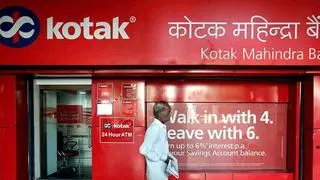The RBI has permitted First Loss Default Guarantee (FLDG) arrangements between two regulated entities (REs) or between a regulated entity and a Lending Service Providers (LSPs) for digital lending.
Arrangements involving default loss guarantee (DLG) will, hence, not be treated as ‘synthetic securitisation’ and will not attract the provisions of ‘loan participation’. The guidelines are effective immediately.
“REs shall ensure that total amount of DLG cover on any outstanding portfolio which is specified upfront shall not exceed 5 per cent of the amount of that loan portfolio,” said the central bank, adding that even in the case of implicit guarantee arrangements, the DLG provider will not bear performance risk of more than 5 per cent of the underlying portfolio.
Need for FLDG
The RBI has defined DLG as a contractual arrangement where the partner entity guarantees to compensate the RE for loss due to default up to a certain percentage of the loan portfolio. This includes other similar implicit guarantees linked to the performance of portfolios.
As a part of the monetary policy on Thursday, the RBI announced allowing FLDG arrangements with the objective of maintaining a balance between innovation and prudent risk management. The framework will facilitate orderly development of the digital lending ecosystem and enhance credit penetration, it said.
Businessline had, on May 29, reported that a framework will be issued shortly and is likely to be more enabling than prohibitive. Digital lenders had presented to the regulator on the urgency of the situation and why allowing FLDG arrangements is crucial, given that the industry is pivoted around it and several companies have built their business models on it.
“The RBI has been engaging with multiple stakeholders on DLG and has incorporated most of the feedback into consideration,” said Jatinder Handoo, CEO of Digital Lenders Association of India (DLAI). He added that the guidelines leave limited room for ambiguity and the well-defined structure will facilitate all players to participate in an effective and transparent manner.
Scope of FLDG
DLG arrangements must be backed by an explicit contract, detailing the extent of DLG cover, form in which DLG cover is to be maintained and timeline for DLG invocation, in addition to other disclosures, said the RBI.
REs can accept DLG arrangements in the form of cash deposits, fixed deposits with a lien marked in favour of the RE, and bank guarantees. They will be responsible for NPA recognition of individual loan assets in the portfolio and consequent provisioning, as per current norms regardless of any DLG cover at the portfolio level.
“The amount of DLG invoked shall not be set off against the underlying individual loans,” RBI said. It added that any recovery by REs, from loans on which DLG has been invoked and realised, may be shared with the DLG provider.
“The RE shall invoke DLG within a maximum overdue period of 120 days, unless made good by the borrower before that.” DLG agreements will need to remain in force for as long as the longest tenor of the loan in the underlying portfolio.
REs will need to ensure that partner LSPs publish data on total number of portfolios and respective amount of each portfolio on which DLG has been offered. They will also need to put in place a board-approved policy and seek information such as aggregate DLG amount outstanding, past default rates and the number of REs and portfolios against which DLG has been provided, before entering into an arrangement.
Karthik Srinivasan, Senior Vice President, Group Head - Financial Sector Ratings, ICRA said the norms will bring in more clarity and provide further impetus to digital lending.
Achala Jethmalani, Economist, RBL Bank

Rajani Sinha, Chief Economist, CareEdge

Mitul Shah, Head of Research, Reliance Securities








Comments
Comments have to be in English, and in full sentences. They cannot be abusive or personal. Please abide by our community guidelines for posting your comments.
We have migrated to a new commenting platform. If you are already a registered user of TheHindu Businessline and logged in, you may continue to engage with our articles. If you do not have an account please register and login to post comments. Users can access their older comments by logging into their accounts on Vuukle.